European Commission President Ursula von der Leyen is delivering her annual State of the Union speech today. Vera Spyrakou writes the speech underlines that the EU can no longer defer difficult choices about its economic resilience, geopolitical relevance and management of migration.
Each September, the President of the European Commission addresses the European Parliament in Strasbourg to deliver the State of the Union speech. Modelled in part on the American tradition, the address was formalised by the 2010 Framework Agreement on relations between the European Parliament and the Commission.
Over the past decade and a half, it has become a central moment in the EU’s political calendar. The Commission President not only sets out the legislative and policy agenda for the year ahead but also seeks to situate the Union’s priorities within broader debates about Europe’s place in the world.
In 2025, the context of Ursula von der Leyen’s address is particularly charged. The Union faces renewed uncertainty in its economic relations with the United States, heightened tensions in global geopolitics and continued internal divisions over migration. Against this backdrop, the European People’s Party Group, which is the largest political force in the European Parliament and the group von der Leyen is affiliated with, has already sketched its vision for the coming months.
Its Chairman, Manfred Weber, has characterised the period ahead as an “autumn of truth”, pointing to three interrelated challenges: economic resilience, security and foreign policy, and migration management. His framing offers insights not only into the group’s priorities but also into the broader pressures that von der Leyen’s Commission will need to navigate.
The State of the Union as an instrument of European politics
The State of the Union has grown in importance over time. Initially seen as a largely symbolic occasion, it has become a rare moment of visibility for the Commission President, both within EU institutions and for a wider European public. Its significance lies in three dimensions.
First, it provides the Commission with an opportunity to exercise agenda-setting power. Although the Commission lacks direct electoral legitimacy, the State of the Union allows it to claim a representative voice for Europe as a whole, aligning its legislative programme with the political debates of the European Parliament.
Second, the address performs an important communicative function. By framing European politics in terms of shared challenges and solutions, the Commission President seeks to construct a narrative of European unity at a time when national discourses often fragment the public sphere.
Third, the State of the Union reflects institutional politics. The speech is always delivered with an eye to the European Parliament’s party groups, which act both as partners and critics in the legislative process. As such, interventions from figures like Weber matter: they define the expectations against which von der Leyen’s speech will be judged and highlight the trade-offs that the Commission must manage.
Continuities and shifts in von der Leyen’s rhetoric
To fully grasp the significance of the 2025 address, it is useful to situate it within the trajectory of von der Leyen’s previous State of the Union speeches. In 2020, she focused on recovery from the COVID-19 pandemic. She framed the EU’s NextGenerationEU recovery plan as a historic step toward solidarity and collective resilience, casting the crisis as an opportunity for transformation. The key message was that Europe could emerge “greener, more digital, and more resilient”.
In 2021, the speech was shaped by the twin challenges of climate policy and geopolitics. The European Green Deal took centre stage, while the chaotic withdrawal of international forces from Afghanistan underscored Europe’s limited foreign policy clout. This was the first time von der Leyen explicitly called for a European Defence Union.
In 2022, the Russia-Ukraine war and the energy crisis took centre stage. Von der Leyen declared Europe had found its “soul”, highlighting sanctions, energy diversification and solidarity with Kyiv. Security and sovereignty emerged as unifying themes, with a strong emphasis on reducing dependence on Russian gas.
In 2023, the main themes were the idea of a “geopolitical Commission” and enlargement. The speech stressed enlargement as a strategic imperative and proposed reforms to prepare the EU for a larger membership. Here, the language of sovereignty and global leadership was deepened.
In 2024, von der Leyen developed a more political edge in her communications, with one eye on the 2024 European Parliament elections. She defended the Commission’s record on recovery, security and climate, while cautiously addressing migration. The tone suggested continuity but also positioned her for a second mandate, which she subsequently secured. The speech on 10 September will be the first of her second term as Commission President.
Across all these speeches, there are three recurring themes: resilience(economic and institutional), geopolitical maturity (security and foreign policy), and cohesion(migration, enlargement, solidarity). What has changed is the intensity of emphasis. If 2020 foregrounded economic recovery and transformation, and 2022 underscored security and sovereignty, the 2025 address is expected to synthesise these into a sharper narrative: how to preserve Europe’s strength in a world increasingly defined by competition and uncertainty.
Competitiveness in a shifting and demanding global order
Weber’s first priority concerns the economic consequences of the recently concluded trade deal with the United States under President Donald Trump. He describes the agreement as a “serious challenge” for European industry. While transatlantic relations have long been central to the EU’s economic strategy, the asymmetry of this deal is perceived as exposing Europe’s vulnerabilities.
At stake is more than the competitiveness of individual sectors. The trade negotiations raise fundamental questions about the EU’s capacity to act as a global economic power. For the EPP, the response must involve strengthening Europe’s internal competitiveness, particularly through industrial innovation and technological leadership.
This represents continuity with von der Leyen’s earlier rhetoric. Her 2020 and 2021 addresses emphasised Europe’s need to lead in green and digital transitions. Yet Weber’s framing highlights a shift: from opportunity to defence. Whereas the pandemic recovery plan was about seizing an opportunity for transformation, the 2025 debate is about protecting Europe’s position in an unfavourable global environment.
Security, geopolitics and confronting Europe’s vulnerabilities
A second priority highlighted by Weber concerns Europe’s foreign policy and security posture. His reference to the “red-carpet welcome” for Russian President Vladimir Putin in Alaska is clearly symbolic, yet it points to a broader anxiety about Europe’s geopolitical marginalisation. Here too, the trajectory of State of the Union speeches is instructive.
In 2021, von der Leyen floated the idea of a European Defence Union; in 2022, she framed Ukraine as a turning point in Europe’s security identity. The later addresses sustained this rhetoric of “strategic autonomy”, but implementation remained partial. Weber’s insistence that “Europe must grow up” resonates with this discourse but adds urgency.
It implies that Europe’s credibility is at stake: without concrete progress on defence integration, the gap between rhetoric and reality will become untenable. The question for von der Leyen in 2025 is whether she can move beyond symbolism to demonstrate genuine capability in the field of security and defence.
Migration and internal cohesion
The third area of emphasis is migration, an issue that has repeatedly tested the Union’s cohesion. Weber stressed the importance of halting illegal migration and moving forward with the long-debated EU return regulation. For the EPP, effective migration management is essential not only for border security but also for maintaining public trust in the Union’s capacity to act.
Migration has been a recurring but delicate theme in von der Leyen’s State of the Union speeches. In 2020, it was overshadowed by the pandemic. In 2021 and 2022, it appeared in passing, framed largely in terms of solidarity. Only in 2024, ahead of the European Parliament elections, did von der Leyen begin to address migration more directly, balancing humanitarian commitments with the need for effective border management.
Weber’s intervention signals a harder line: migration cannot remain a secondary theme but must become a central policy priority. Whether von der Leyen will echo this emphasis in 2025 remains to be seen, but it highlights the degree to which migration continues to divide political groups and member states.
Towards a “grown-up” or stronger Europe by default?
Weber’s overarching message is that Europe must “grow up”. By this, he means a Union that can sustain economic growth, defend its security and manage migration effectively. His framing is deliberately stark: the trade deal with Trump exposes economic vulnerabilities; the reception of Putin highlights geopolitical weakness; the persistence of irregular migration underscores institutional inertia. The EPP’s vision is one of a stronger, more assertive Europe.
Yet whether this vision can be realised depends on more than the Commission alone. The State of the Union may set the tone, but implementation requires consensus among the European Parliament’s party groups, cooperation with the Council and the engagement of member states. In this sense, Weber’s speech underscores both the opportunities and the limits of the State of the Union as an instrument of European politics.
The autumn of truth
The 2025 State of the Union comes at a moment of heightened uncertainty. The challenges of economic resilience, geopolitical relevance and migration management are not new, but they have become sharper and more urgent. Weber’s characterisation of an “autumn of truth” captures the sense that the EU can no longer defer difficult choices.
The trajectory of von der Leyen’s previous State of the Union speeches reveals both continuity and escalation: from recovery to climate and global engagement, security and sovereignty, and to a political defence of her record. The 2025 address is thus likely to synthesise these themes into a narrative of strength, growth and security.
However, the State of the Union is both a reflection of Europe’s current dilemmas and a test of its capacity to act collectively. Whether this autumn becomes one of truth or of further deferral will depend on the decisions taken in Brussels and across Europe in the months ahead. This underscores that the Union’s credibility rests less on rhetorical ambition and more on the difficult compromises that will shape its legitimacy and direction for years to come.
Note: This article gives the views of the author, not the position of EUROPP – European Politics and Policy or the London School of Economics. Featured image credit: CC-BY-4.0: © European Union 2019 – Source: EP

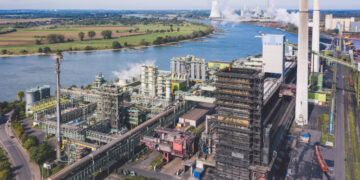
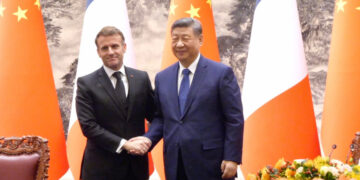
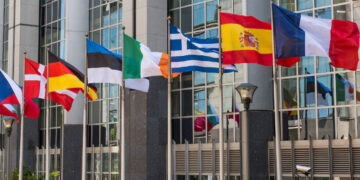






















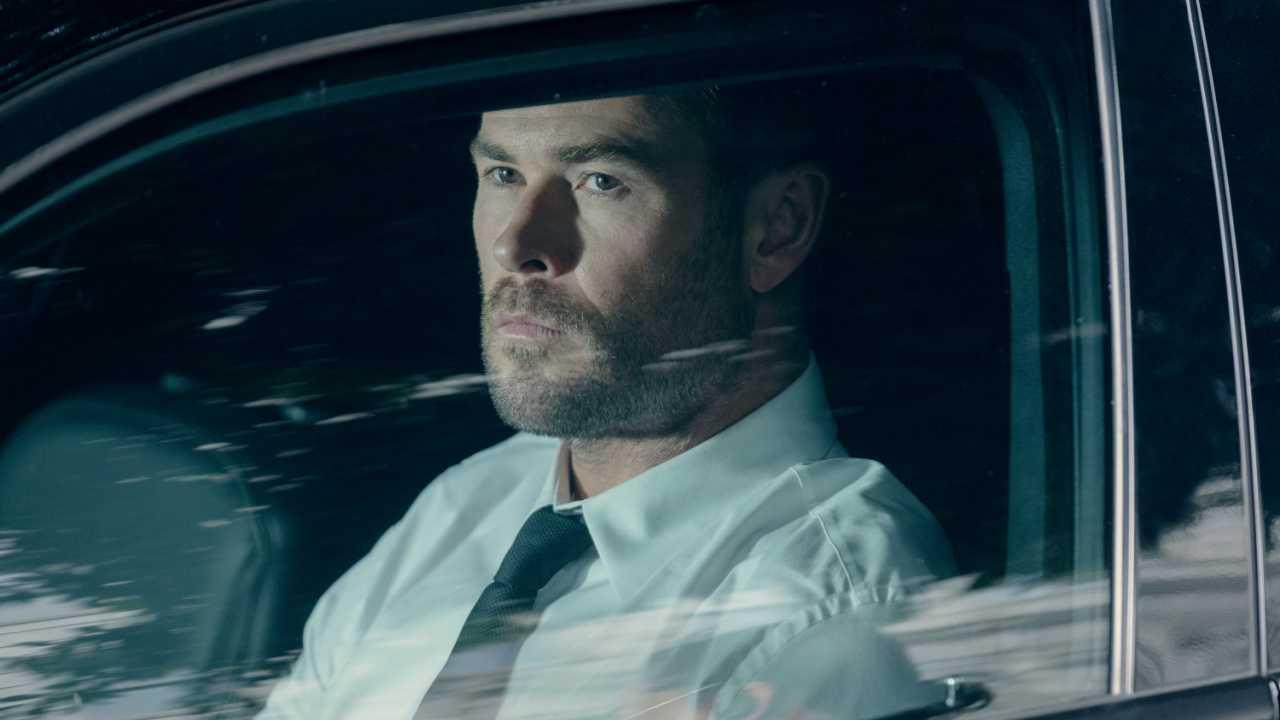




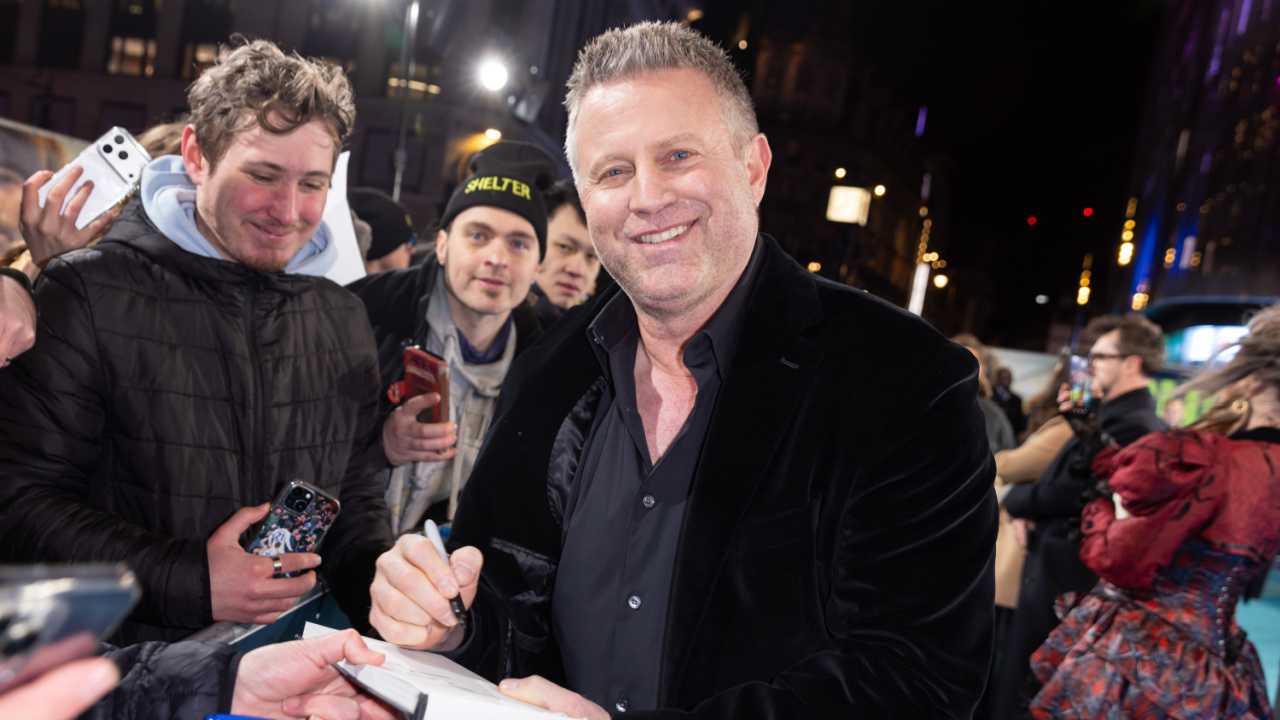

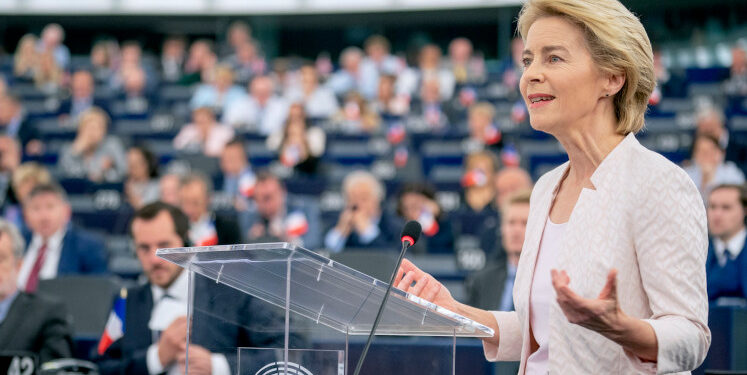




Discussion about this post